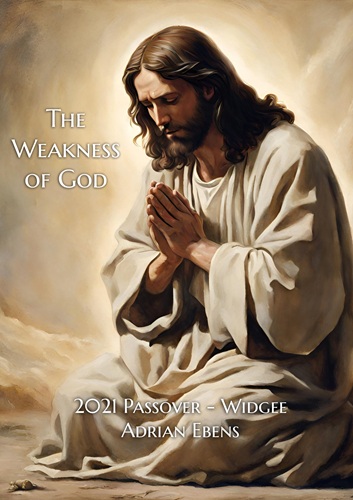The interpretation of Armageddon in the Revelation
The official interpretation of the fifth and sixth plagues is this:
1. The darkness of the fifth plague is literal. This was like one of the plagues of Egypt. Some also quotes from The Great Controversy, that there will be literal darkness when God delivers his people.
2. The place of Armageddon is symbolic, not literal. Armageddon means 'the mount of Megiddo' and there is no such place, so that this must be a symbolic place.
3. The drying up of Eufrates during the sixth plague is symbolic, not literal. The drying up of Eufrates symbolizes that the supporters of Babylon turns away from her. The kings who are coming from the east are Christ and his angels. The gathering of the kings of the Earth are symbolic, not literal. The gathering actually means that they create a kind of alliance.
4. During the sixth plague, Babylon looses her supporters and this prepares the way for Christ and of his angels.
5. The battle of Armageddon will not be a literal but spiritual war.
The official interpretation emphasises the darkness in the fifth plague, and the drying of Eufrates in the sixth plague. I think this is a wrong approach and leads to a wrong interpretation. The point is the seat of the beast in the fifth plague, and the gathering of the king of the Earth in the sixth plague.
1. We know that the plagues are accumulating. A new plague does not end or destroy the effect of the former ones. The fourth plague is scorching the Earth with fire. If the fifth plague were a literal darkness, then this would mean a relief from the fourth. This would mean that the fourth plague ceases by that time.
The fifth plague is poured out onto the seat of the beast and not onto the sun, as happened with the fourth plague. I think the fifth plague is a change in the government of the beast. This change is going to open the door for the demons and miracles. I think the fifth plague leads to the sixth one.
2. Armageddon means 'the mount of Megiddo'. There is no such mount which is called Megiddo, however there is an old city near Jerusalem, called Megiddo and is surrounded by mountains. I think this is a literal place, where the kings of the Earth will gather. I think Rev 19:19 is a literal gathering: 'And I saw the beast, and the kings of the earth, and their armies, gathered together to make war against him that sat on the horse, and against his army.' Ezekiel 39, which describes the battle of Armageddon also mentions this: 'and will cause thee to come up from the north parts, and will bring thee upon the mountains of Israel'.
3. One day I was sitting in church and I was watching the map of Israel and I suddenly understood what the sixth plague is all about. The main thread of the story of the sixth plague is described in verses 12, 14 and 16. The 13. and 15. verses just explains the story more deeply.
'12. And the sixth angel poured out his vial upon the great river Euphrates; and the water thereof was dried up, that the way of the kings of the east might be prepared.
...
14. ... they are the spirits of devils, working miracles, which go forth unto the kings of the earth and of the whole world, to gather them to the battle of that great day of God Almighty.
...
16. And he gathered them together into a place called in the Hebrew tongue Armageddon.'
Armageddon is a place north of Jerusalem. Eufrates is a border river which separates Babylon from Israel. There are kings on the Babylon side of the river and they cannot cross it. The river dries up and the kings crosses the river and go to Armageddon. I think that the kings from the east are actually the kings of the Earth. The prophecy identifies it clearly.
4. We know that Babylon will be destroyed during the seventh plague. The voice of God will change the flow of the events, but until then the supporters of Babylon do not turn away from her. Rev 16:19 'And the great city was divided into three parts, and the cities of the nations fell: and great Babylon came in remembrance before God, to give unto her the cup of the wine of the fierceness of his wrath.' I believe that the 18. chapter of Revelation, which describes the destruction of Babylon takes place during the seventh plague.
The sixth plague describes the deception of demons. If this plague is the event when Babylon looses the supporters, then what about the deceptions? Why is it necessary? Why is it a plague anyway? And why do we have to watch and keep our garments? This does not make sense.
There is a more logical interpretation: The drying up of the Eufrates means that the border, which holds back the demons, disappears. They start to deceive and gather the kings of the Earth into one place. During that time Satan will impersonate Christ. This will be the his biggest deception. Satan will not be able to destroy the saints because the saints are protected by angels. He is going to make a last effort to deceive them. The saints are praying for God to send them Christ. Satan will imitate that God answered their prayers and impersonate Christ. This will be the last test and Jesus warned us. The whole world will think that Jesus has already come. For them, Jesus will come as a thief. 'Behold, I come as a thief. Blessed is he that watcheth, and keepeth his garments, lest he walk naked, and they see his shame.'
5. The battle of Armageddon occurs during the seventh trumpet. The previous six trumpet described literal wars. We cannot say that the last one will be a spiritual war. Ezekiel 38 and 39 describes the battle of Armageddon and the battle which occurs at the end of the 1000 years. Both of them are literal wars. Jesus described the end of the world as a time of literal wars. Ellen White did the same.
However there will also be a spiritual war: a debate of the Sabbath. The sixth plague joins the literal and spiritual war.




